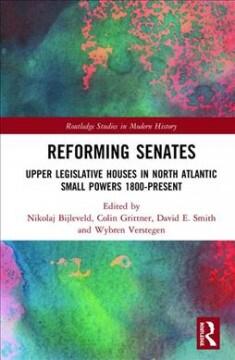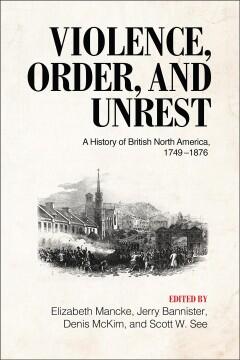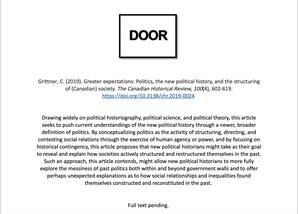Grittner, Colin
Person Preferred Name
Colin Grittner
Affiliation
Related Works
Content type
Digital Document
Abstract
The chapter, "Constitutional conservatism, anti-democratic ideology, and the elective principle in British North America's upper legislative houses, 1848-1867" was written by the listed authors including Colin Grittner (Douglas College Faculty). "This new study of senates in small powers across the North Atlantic shows that the establishment and the reform of these upper legislative houses have followed remarkably parallel trajectories. Senate reforms emerged in the wake of deep political crises within the North Atlantic world and were influenced by the comparatively weak positions of small powers. Reformers responded to crises and constantly looked beyond borders and oceans for inspiration to keep their senates relevant." -- From publisher description.
Origin Information
Content type
Digital Document
Abstract
The chapter, "Of bludgeons and ballots: political violence, municipal enfranchisement, and local governance in mid-nineteenth-century Montreal" was written by Colin Grittner (Douglas College Faculty). "This edited collection offers a broad reinterpretation of the origins of Canada. Drawing on cutting-edge research in a number of fields, Violence, Order, and Unrest explores the development of British North America from the mid-eighteenth century through the aftermath of Confederation. The chapters cover an ambitious range of topics, from Indigenous culture to municipal politics, public executions to runaway slave advertisements. Cumulatively, this book examines the diversity of Indigenous and colonial experiences across northern North America and provides fresh perspectives on the crucial roles of violence and unrest in attempts to establish British authority in Indigenous territories. Drawing on specific case studies of law and state formation in English and French Canada, Violence, Order, and Unrest brings together innovative research in different fields to reconsider the ideology, governance, and political culture that underpinned British North America. The contributors offer a unique take on Canadian culture and history, demonstrating that we cannot understand Canada today without considering its origins as a colonial project." --From publisher description.
Origin Information
Content type
Digital Document
Abstract
This article discusses understandings of manhood in Liverpool, Nova Scotia, during the late eighteenth and early nineteenth centuries. By means of the voluminous diary kept by Simeon Perkins, a man of local prominence, it explores the social responses within this rural seafaring community to how men chose strategies for gaining social status, exercising public power, and juggling private interest and public service. Across northeastern North America, capitalist ideals of independent manhood were gradually replacing moral ideals of communal manhood, which ultimately strained networks of reciprocity both within and outside the family. Yet by placing Perkins alongside Benajah Collins, another prominent Liverpudlian, this article also reveals that those who drifted too far from morally grounded communal ideals of manhood continued to find themselves ostracized within their immediate communities.
Origin Information
Content type
Digital Document
Abstract
Drawing widely on political historiography, political science, and political theory, this article seeks to push current understandings of the new political history through a newer, broader definition of politics. By conceptualizing politics as the activity of structuring, directing, and contesting social relations through the exercise of human agency or power, and by focusing on historical contingency, this article proposes that new political historians might take as their goal to reveal and explain how societies actively structured and restructured themselves in the past. Such an approach, this article contends, might allow new political historians to more fully explore the messiness of past politics both within and beyond government walls and to offer perhaps unexpected explanations as to how social relationships and inequalities found themselves constructed and reconstituted in the past.
Origin Information




